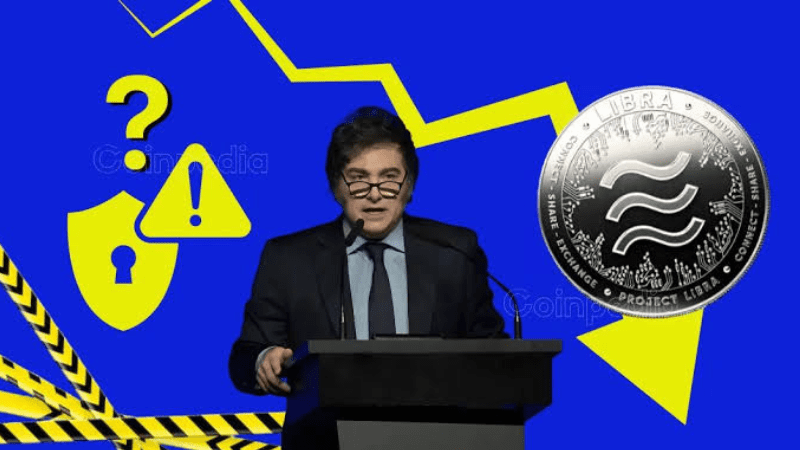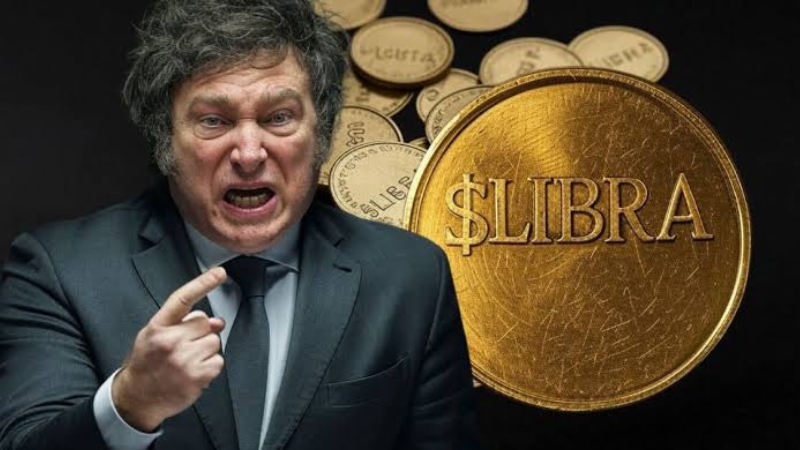Argentina’s congressional committee has released an investigative report accusing President Javier Milei of bearing “political responsibility” for what it calls a potentially fraudulent cryptocurrency scheme. The finding, delivered by a panel within the Chamber of Deputies, centres on Milei’s public endorsement of the $LIBRA meme coin earlier this year and alleges impropriety tied to its sudden collapse.
The report, driven largely by opposition lawmakers, also implicates the president’s sister and close confidante, Karina Milei. According to the committee, her involvement in the president’s communications and political strategy places her in the mix.
The investigation follows that infamous post by President Milei in February, when he took to his official X handle to post, “The world wants to invest in Argentina. $LIBRA.” The message, shared across multiple platforms, sparked immediate attention and drew thousands of Argentine investors toward a token that was marketed as a symbol of optimism about the country’s economic future.
Crypto experts later concluded that the project bore the hallmarks of a “rug pull”, a tactic in which promoters inflate interest in a digital asset only to withdraw liquidity, causing the token’s value to collapse. In the case of $LIBRA, investors watched the token price crash within hours, causing losses reportedly in the hundreds of millions of dollars.

Milei has since insisted that he did not know the coin’s creators, details, or underlying mechanisms. His office framed the post as a generic message of support for economic innovation. But opponents argue that any public endorsement from a sitting president carries weight and consequences.
President Milei’s indictment deepening political tension
The congressional report, now submitted to judicial authorities, adds new fuel to an already expanding legal probe. Argentina’s courts have received more than 100 criminal complaints related to $LIBRA since mid-February. These filings come from both affected investors and political figures who claim the president’s messaging misled the public.
Despite multiple summonses, both Javier and Karina Milei declined to participate in the legislative inquiry. The panel criticised their absence, saying it hindered transparency at a moment when public trust in crypto ventures remains fragile across Latin America.
The episode highlights a widening global debate about crypto endorsements by high-profile figures. In recent years, projects tied to celebrities and political personalities, including one reportedly linked to the US rapper Kanye West, have sparked controversy after suffering dramatic price swings. Regulators worldwide have warned that celebrity-backed tokens carry heightened risk due to their tendency to rely on hype rather than fundamentals.


Adding another twist, $LIBRA’s price surged as much as 30 per cent shortly after publication of the congressional report. Analysts suspect coordinated insider trading may be behind the unexpected bump, though no formal accusations have been issued. Some investors interpreted the surge as evidence of continued market manipulation, deepening calls for oversight.
For Milei, the controversy arrives during a turbulent period marked by economic instability, public unrest, and heightened scrutiny over his administration’s fiscal and foreign policy decisions. The Argentine president has recently courted international support, including from the United States, as his government confronts inflation, debt obligations, and strained social programmes.
Legal experts say the case will test the extent to which a sitting president can be held accountable for influencing financial markets, even indirectly. Should prosecutors find evidence of coordination or intent, the political ramifications could be significant. Programmes.








